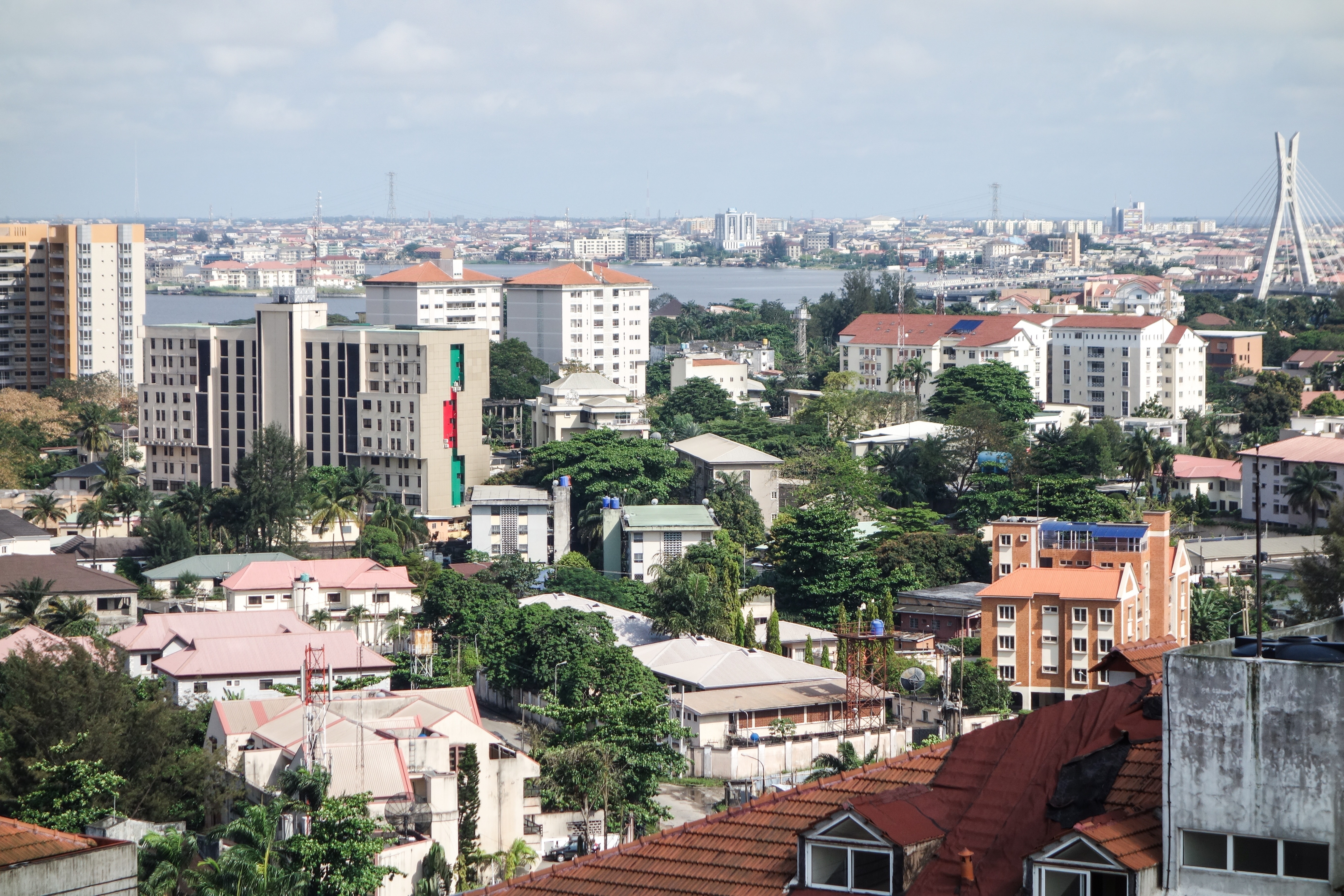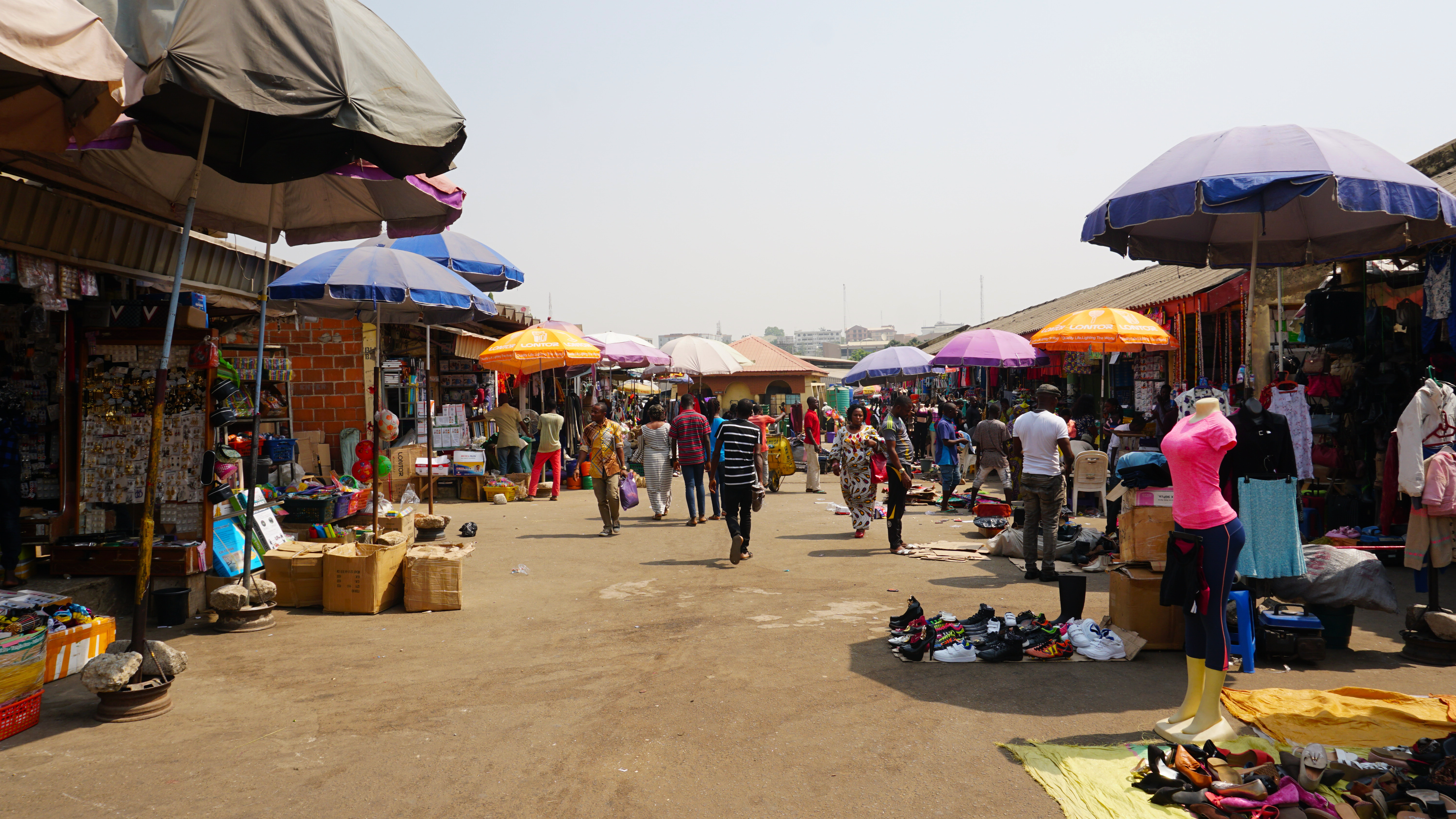
In mid-April during the lockdown, a woman identified as Rose was physically attacked by her landlord in the Akowonjo area of Lagos. The man first complained about her use of the clothesline, and later questioned how she got the new car she drove, according to witnesses.
A scuffle ensued and the landlord repeatedly hit the woman’s head against a wall and tried to strip her before shocked neighbours, some who began to record the incident, raised the alarm. They did so from a safe distance, wary of contracting the deadly virus.
While the months-long lockdown imposed by the government to check the spread of coronavirus lasted, activists and authorities reported an increase in gender-based violence as victims were forced to stay more closely with their abusers, and found it more difficult to seek help due to the restriction of movement.
But the lockdown had another strange impact: in many cases, victims could not get help because witnesses observing social distancing refused to physically intervene.
Activists and community workers say they reviewed a number of such cases especially in densely populated areas like Lagos.
Gabriel Oyediji, a social worker who intervened in Rose’s case after receiving the video recording from neighbours, described the case as a “three-phase-tragedy”.
“The first tragedy occurred when the woman’s neighbours did not interfere because they wanted to maintain social distance. This allowed the misunderstanding between the tenant and landlord to escalate,” said Mr Oyediji, who is the national secretary of the Association of Orphanages and Homes of Nigeria.
The second tragedy, he said, occurred at the police station as officers only arrested the woman and not her attacker.
“In addition, the female DPO at Sasha police station in Akowonjo, Lagos, passed judgement in favour of the landlord due to his influence in the area,” he said.
The third tragedy occurred when the investigating police officer demanded N25,000 to start an investigation.
According to Mr Oyediji, the woman pleaded she had only N10,000 and once the money was paid, the offender was arrested. However, he was released within 30 minutes without making a statement, and after allegedly making some payment to the officer in charge of the case.
After neighbours cried foul, Mr Oyediji said he informed the police area commander who ordered an investigation and a medical examination after the senior officer saw the degree of head injury.
Gender-Based Violence
Abiola Akiode-Afolabi, who is the executive director of WARDC, said although there was high prevalence of gender-based violence before the COVID-19, the pandemic and its attendant lockdown aggravated it.
“Tension has built up, there is a lot of uncertainty, there are fears around and people are not sure whether they’re going to get their jobs back, and many more are not sure what to expect,” she said at the time.
Foluke Ademokun, the executive coordinator at Ajoke Ayisat Afolabi Foundation, said most of the reports her organisation received during the lockdown were issues of “domestic jealousy and anger”, people living with their abusers, tension due to the economic impact of the lockdown, and tension between tenants and landlords.
Activists said the lockdown left victims of abuse at the mercy of their abusers as many, due to restriction, were not able to escape from their abusers. And when they eventually did, neighbours afraid of contracting being infected with the virus, refused to offer close help like taking them in.
Challenges
To be fair, the shelter challenge predated the lockdown and has existed on a much larger scale.
According to Julie Okah Donli, the director general of the agency against human trafficking and domestic violence, NAPTIP, the agency has only “338 shelters across 10 states in Nigeria”. That leaves 16 other states in Nigeria with no shelters run by the national body in charge of protecting victims of abuse.
Further complicating the matter, civil society groups and NGOs said they were not positioned to maximize their position as first responders to victims of domestic violence because they were not categorized as essential services by the government. Without passes, this made it difficult for them to provide quick professional service and support to victims of GBV during the lockdown.
In Nigeria, the lack of post-intervention reliefs is one of the biggest challenges when it comes to managing gender-based and domestic violence. That is made clearest when the matter involves members of the same family.
“You want to make the man face the music or woman face the music, but by the time you take the man out and put him in detention, the family suffers, and the man suffers,” said Mr Oyediji. “In most cases, the woman does not have a good job that can sustain the family, she cannot pay rent, feed the children, thereby leaving the disarray. When rent expires, landlords put pressure on the woman and we begin to regret the intervention because sometimes we create more problems than the ones we’re trying to solve.”
In countries with well-developed intervention systems, abused women do not suffer after their partners are arrested as they are provided with housing and monthly allowances for the family. In Sweden, for instance, 70 per cent of available shelters are run by NGOs.
Nigeria became the first country in West Africa to pass the violence Against Persons Act at the national level. To date, 12 states in Nigeria have also followed suit in passing this law. These states are Ogun, The FCT, Ekiti, Oyo, Osun, Benue, Kaduna, Edo, Kogi, Anambra, Enugu, and Rivers.
However, according to Mrs Akiode-Afolabi of WARDC, the laws are not properly implemented. There are some statutory bodies that are supposed to be created under the law that have not been created at the federal level and in about 80 per cent of the states where the violence against a person act has been passed.
Solutions
To tackle gender-based violence issues during a difficult time such as a lockdown, the activists said there is need to use community radio stations to enlighten people and tap into social media spaces to create awareness in pidgin English, and local languages to reach diverse groups on how the prevention of gender-based violence can be done in the communities and in other places.
They said the government needs to review laws related to gender-based violence issues and ensure they are applicable to recent events and are implementable.
They urged the police to be more committed to justice in their handling of cases of abuses. Also, communities need to promote a zero-tolerance for violence.
Also, the support mechanisms must be effective, accommodating, and responsive to the needs of the target audiences. They said there should be short-term shelters, free 24/7 manned hotlines across the country, legal, and trauma counselling services nationwide.
This Outbreak story was supported by the Pulitzer Center and Code for Africa's WanaData women data science initiative.
COVID-19 Update: The connection between local and global issues–the Pulitzer Center's long standing mantra–has, sadly, never been more evident. We are uniquely positioned to serve the journalists, news media organizations, schools, and universities we partner with by continuing to advance our core mission: enabling great journalism and education about underreported and systemic issues that resonate now–and continue to have relevance in times ahead. We believe that this is a moment for decisive action. Learn more about the steps we are taking.









